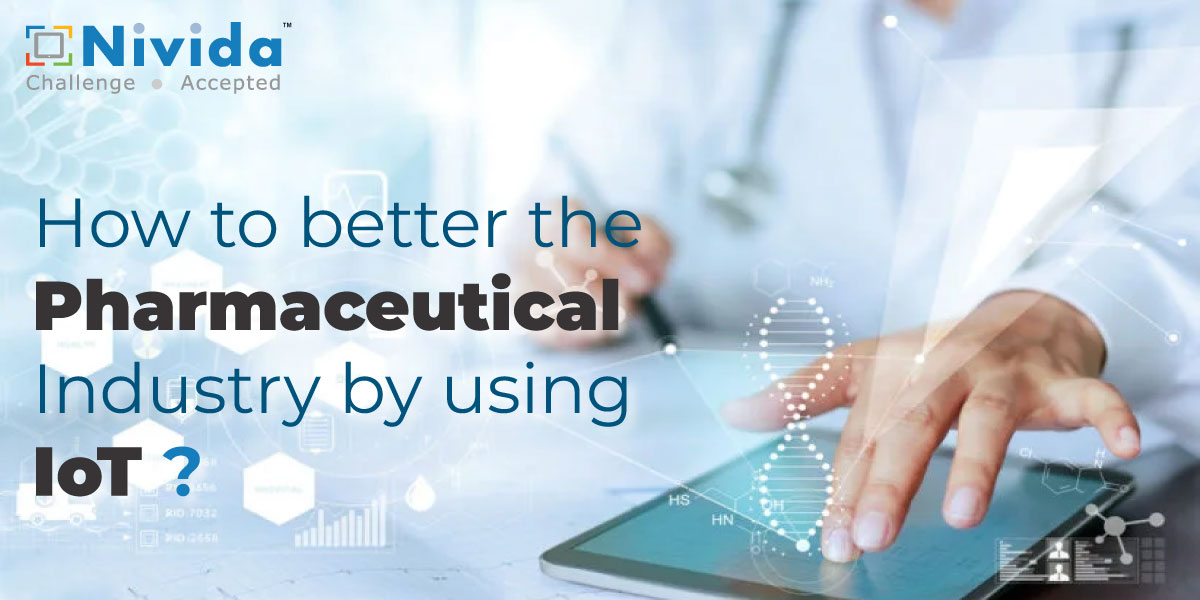Big data and artificial intelligence are only two of the emerging technologies that are causing a revolution in the pharmaceutical sector. It's a problem from head to toe, wreaking havoc on everything from how patients engage with the healthcare system to how they're actually treated. It is extremely difficult for pharmaceutical businesses to keep up with the current speed of change due to the profound and all-encompassing nature of these shifts.
Not only the innovation is taking place, but it is doing place at an astonishingly rapid rate. Large pharmaceutical companies are having a hard time keeping up with the times due to their complicated operating bases and the stringent regulatory environments they operate in. The existing pharmaceutical business is being challenged by newer, more agile startup companies, which is causing a disruption in the industry's competitive landscape.
3D-printed prosthetic body parts can be used for patients that require prosthetics, which is one example of a new technology that has the potential to be disruptive. Artificial intelligence is another example of a new technology that is altering the way in which new drugs are generated.
The pharmaceutical sector needs to discover strategies to stay up with these changes in order to guarantee that medicines can be made in a risk-free manner. It is going to demand some new ideas, as well as the industry’s landscape is likely going to change as a result of the fact that technological competence is becoming an increasingly essential factor in determining competitiveness.
IoT is a network of devices that are connected to the internet and are capable enough of gathering, analyzing, as well as communicating crucial information through installed sensors, and that can help in the automation of smart processes. This network can be characterized as follows: IoT has enormous untapped potential as well as it is already revolutionizing a wide range of businesses and markets all around the world. The implementation of IoT technologies within the medical as well as pharmaceutical device manufacturing industries could result in an increase in product quality, a decrease in overall costs, a shift in the manner in which prescribers receive their medications, and the facilitation of informed, long-term business decision-making by the sector's dominant player.
- Material Management and Tracking:
- Quality Control & Production:
- The release of flammable or toxic gases or liquids into the workplace.
- Toxic or ineffective, depending on how the drug was made can be the result of poor manufacturing.
- A breakdown in machinery can halt output and need costly clean-up processes.
- Managing the Supply Chain:
- Managing the Process of Production:
- Regulatory Compliance:
As networked sensors with two-way data transfer and the capacity to monitor stock levels in real-time at low cost, IoT gadgets are ideal for inventory management. A pharmaceutical company faces substantial risks from the introduction of counterfeit medications or the theft of products, making it imperative to keep track of the origin of supplies in order to maintain quality, manufacturing speed, and the risk of ingredient replacement.
The pharmaceutical sector necessitates rigorous Product development as well as quality control procedures. Anything can go wrong while dealing with potentially life-saving chemicals or devices.
However, by incorporating IoT technology into quality assurance and manufacturing, the likelihood of machinery breakdowns is greatly reduced, and precision manufacturing is ensured.
For medical supplies and pharmaceuticals, supply chain visibility is crucial. IoT enables interconnected devices to exchange data, allowing for the estimation of production requirements and the detection of out-of-date lots. Tracking devices based on IoT make it simpler to find affected packs in the supply chain and pull them for recall.
Data analytics software allows for innovative uses of the information gathered from IoT-connected devices. To boost efficiency and profits, this program can determine problem regions, as well as discover inconsistencies and prospective cost increases.
There needs to be thorough documentation of the pharmaceutical manufacturing process to ensure regulatory compliance. Through continuous data transmission to a server, IoT-connected devices in the pharmaceutical industry can help set that quality standard while also reducing the need for human intervention and the scope of potential human mistakes.

